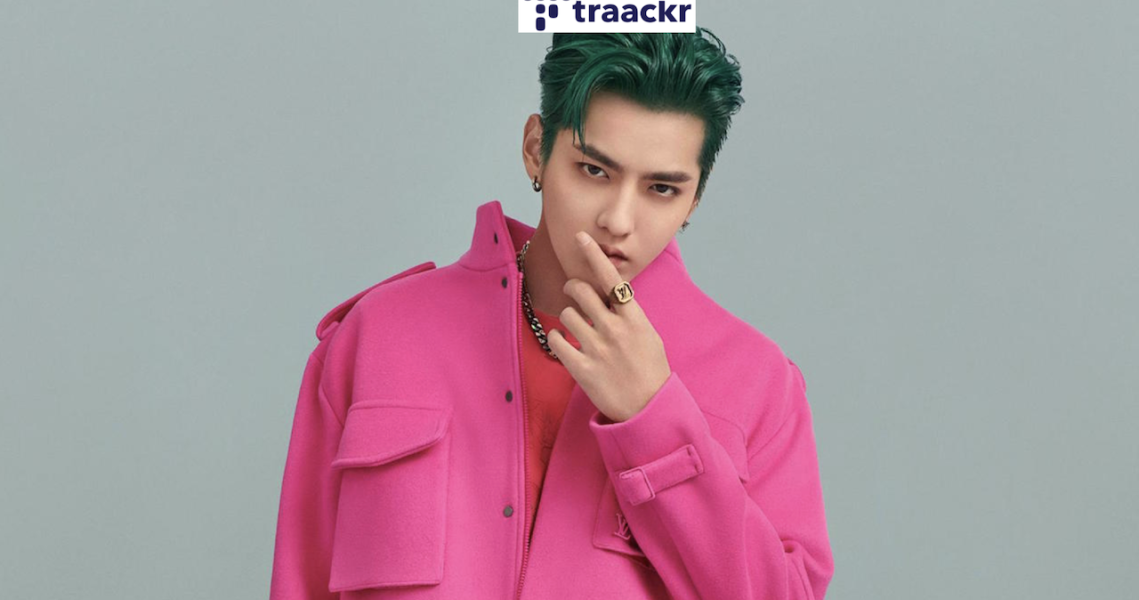Until last week, Chinese-Canadian actor and musician Kris Wu was the poster boy for some of the world’s biggest luxury brands. But now, his #MeToo scandal could impact their sales.
Last week, Louis Vuitton, Bulgari, Lancôme and L’Oréal Men were among the brands severing their brand ambassadorships with the superstar after a rape allegation was made against him online. The internet’s reaction was swift, calling on brands to break ties with him. As the main face in China for these brands, Wu’s downfall highlights the risks of reliance on celebrities for engagement and sales.
“Boycotting brands has become a routine for Chinese netizens once brands are involved in spokespersons’ scandals. If brands don’t act quickly, their sales and reputation will most likely be harmed,” said Ye Chen, a research analyst at Reach24h.
Two days prior to these international labels cutting ties, Chinese beauty brand KANS was early to end its ambassadorship with the star. This garnered a much more positive response from the public, compared to brands that took their time, said Chen.
“KANS is the biggest winner in this event because of its fastest response,” said Chen. “It was an ordinary brand in China before the scandal, not even known by many young consumers. However, it became a famous and popular brand overnight.” She noted that the brand’s livestream views reached 3.7 million after its announcement, achieving 5.42 million RMB ($836,000) in sales overnight. The exposure made two of its live-streamers the most popular on the Taobao platform, surpassing China livestream king Austin Li.
Lancôme, L’Oréal Men and Louis Vuitton, meanwhile, “were criticized by the public on social media. And many people started to look for replacements, [versus buying] their products.”
“Scandals move faster than anyone can imagine in the Chinese online sphere. As a result, when these incidents occur, netizens are paying attention to the swiftness of brand responses and actions. With the importance of the Chinese market for brands today, managing these scandals in a timely manner requires autonomy at a local brand team level,” said Iris Chan, a partner at Digital Luxury Group.
Wu has been highly sought after by foreign brands in China after being credited for a Burberry turnaround in 2017. He was named Louis Vuitton brand ambassador in 2018 and Bulgari ambassador in 2017, and was mentioned in LVMH’s financial report for 2020.
“There is no doubt that local Chinese celebrities can significantly contribute to brand awareness, especially given the diminishing influence of foreign celebrities in China today,” said Chan. She noted that Wu’s walk in Louis Vuitton’s headline-grabbing post-pandemic Shanghai runway show garnered hundreds of millions of views. But this reliance means a major risk, should a scandal occur.
“In the long run, brands who are not already doing so, should consider China market strategies that do not solely rely on celebrity star power,” said Chan.
Some of Wu’s diehard fans are defending him, as they choose to believe his claim that the rape allegation is false.
“Bulgari has special meaning for Wu and his fans,” said Chen. She said that, during a similar accusation Wu faced five years ago, Bulgari still announced him as its brand ambassador and then worked with him for five years. His fans have been mobbing Bulgari’s social accounts, sarcastically saying, “Thanks for [your] cooperation for these years,” in anger at the brand for dropping him.




